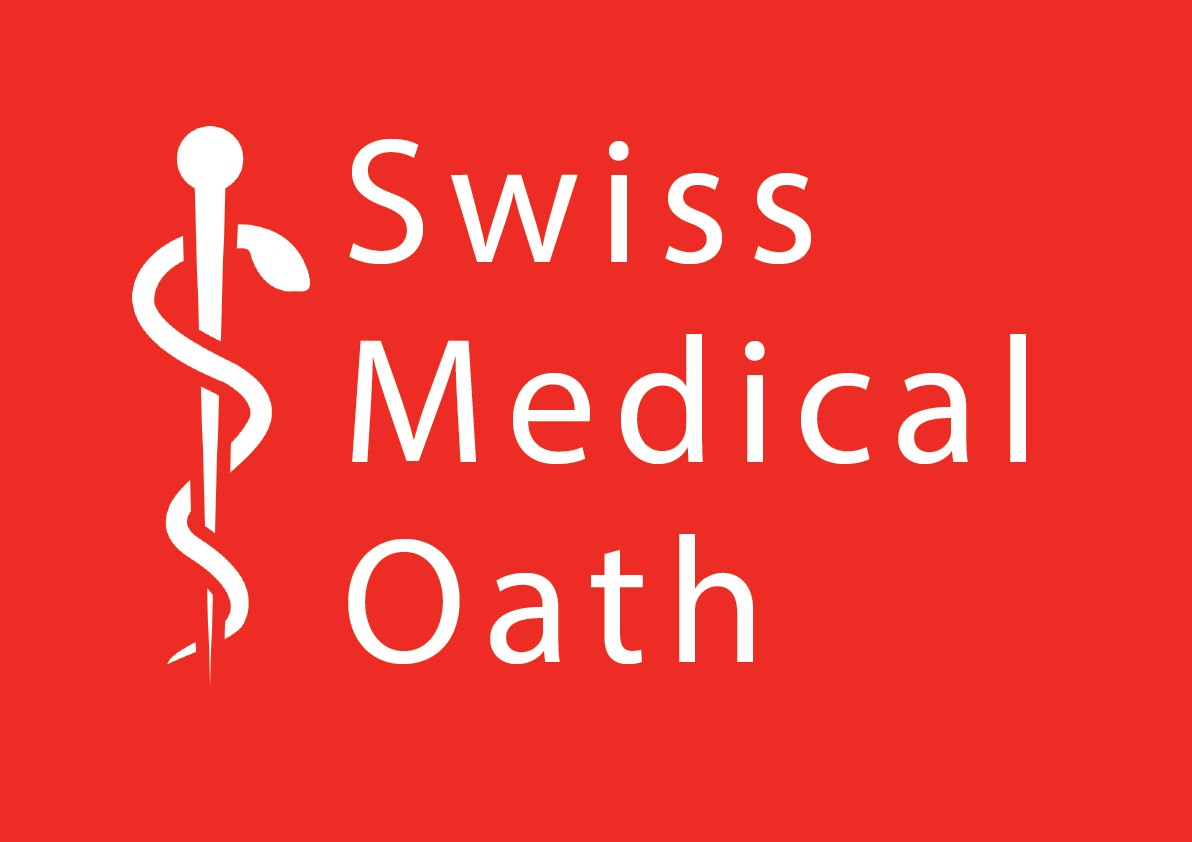History
The project "Swiss Medical Oath" goes back to the formation of a small, interprofessional - still informal - committee in 2014 at the "Interdisciplinary Institute for Ethics in Healthcare" of the Dialog Ethik Foundation in Zurich. The establishment of this new committee followed on from a wide range of commitments by the Dialog Ethik Institute to the best possible decision-making and action in health and social care. For example, in the run-up to the establishment of the Oath Commission, the Institute published two manifestos for a fair distribution of services and resources in the health care system and was instrumental in the founding and activities of the Swiss Medical Board.
Oaths have long had a reputation for being antiquated. Apart from oaths to a respective national constitution, they had largely disappeared from the public consciousness. This statement is not entirely true for the existing oaths for physicians, but they also had a rather marginalized existence: The Oath of Hippocrates - the oldest and best-known medical oath, but outdated in considerable parts - was taken only in rare cases. The Geneva Physicians' Oath of the World Medical Association, which dates from 1948, has been slightly revised and edited on quite a few occasions. The 2017 General Assembly in Chicago added "patient autonomy" to the oath. Less well known is a 1999 charter, Medical Professionalism in the New Millennium: A Physician Charter. In the face of increasing legalization of the profession, medical oaths had generally taken a back seat. The ethos of the medical profession seemed well-settled in the Code of Professional Conduct.
However, the banking and financial crisis of 2008 led to intense discussions about oaths in this professional sector. Elementary standards of conduct had apparently been lost. In the field of medicine, the ever-increasing economic pressure was increasingly perceived as a fundamental threat to the medical ethos. Meanwhile, evidence was accumulating that oaths to uphold a professional ethos, and thus as a defense of a professional group against expectations outside the profession, were taking on a new urgency, especially in times of growing economization. Such a need became concrete for Ruth Baumann-Hölzle and Jean-Pierre Wils in the preparatory work for their joint book "Sinn und Zukunft des Gesundheitswesens" (Geneva/Schulthess 2013). It contained a "plea for a new professional ethos and a new medical oath."
In view of the many challenges facing the profession, the need had arisen to reformulate the most important virtues of the medical profession - its moral principles, as it were - in a constitution suitable for modern times.
Following this publication, the aforementioned commission was created, consisting of representatives of medicine, economics, administration, ethics, theology and philosophy. It began its work in 2014. Over the course of time, the commission grew steadily and honed the individual components of the oath in intensive discussions, not least the name of the oath. the first version of the new oath was published in 2015.
The first swearing-in ceremonies took place in 2018. What started as a grassroots movement has since gained considerable momentum, which was temporarily slowed by the priorities caused by the pandemic since the spring of 2020, but has since been solidified by various professional societies.
